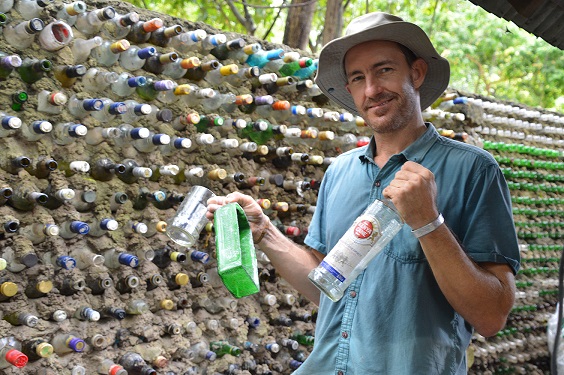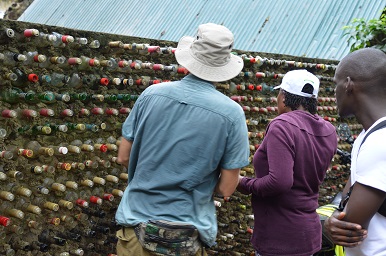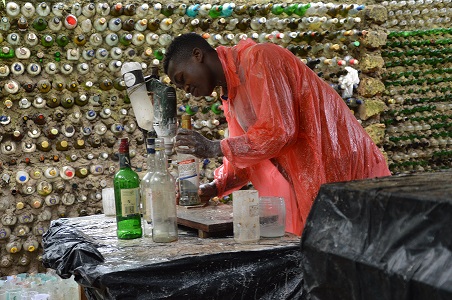
By Francis Mureithi |mureithifrancis1964@gmail.com
As Atty Pye steps into one of the beachfront hotels on the South Coast in Mombasa, one may easily mistake him for an international tourist.
He heads to the reception and tells the receptionist, “I’m here to collect trash.”
The shocked receptionist refers him to the hotel manager. After a lengthy discussion, the two emerge shaking hands before getting down to business.
That is a typical day for Pye, 41 a man on a waste collection mission in the entire coastal City.
Pye is seeking to combat climate change and improve marine conservation by creating awareness among hotel owners so that they can reduce the impact of waste from their businesses.
“I try to find ways to utilise waste from hotels to reduce its impact on the ocean. We do crucial tasks like cleaning the beach of harmful plastic material. We do that every day,” said Pye.
Pye has a team of young people who remove plastic from the ocean and transform it into cool and useful new products using machines.
“We use a plastic extruder and shredder to recycle plastics from the ocean into curios and glass stands which we give to visitors. Our objective is to create value from waste. The waste we collect from the ocean, isn’t waste anymore. We see it as treasure,” explained Pye.

Pye, a sustainability expert said his team separates the waste they collect from the ocean into 13 different materials including plastic, glass, metal, and nylon.
“We do this deliberately because we have an organic farm where we grow vegetables. We feed our leftover food to our chicken that are reared for eggs. By doing this, we cut on expenses in our business,” said Pye.
For Pye, the ultimate goal is for businesses at the Coast to embrace a fully circular economy and go green.
“We’re rooting for a circular economy to realise the Sustainable Development Goals and Kenya’s Vision 2030.”
Though what Pye is doing is just a drop in the ocean given the scale of plastic waste pollution globally, it is worth the effort.
According to the World Economic Forum, there are 75 to 199 million tonnes of plastic polluting oceans globally.
Interestingly, this is a result of humans recycling only a paltry nine per cent of plastic waste and dumping 10 million tonnes into the oceans each year.
Sustainable waste management experts warn that if the world continues on this path, the annual flow of plastic into the ocean could triple by 2040.

The largest share of plastic, which is more than 80 per cent that enters the oceans, comes from rivers in Asia. In 2020, around five million tonnes of plastic waste was traded globally.
The world generates around 350 million tonnes of plastic waste per year. That means that around 2 per cent of waste is traded.
“Marine plastic pollution may be costing the world economy trillions of dollars every year because it affects fisheries, coastlines, tourism, marine life, and the food we eat,” said Pye.
According to Kenya Maine and Fisheries Research Institute (KMFRI) Director General James Njiru, the institute’s findings show that 37,000 metric tonnes of plastic get into the Indian Ocean annually. This has caused the death of marine animals such as fish and turtles as a result of suffocation from plastics.
Pye has been working to end ocean pollution for the last seven years and is not about to call it quits.
Infographics Plastic Pollution:
Around 8 to 10 million metric tonnes of plastic end up in the ocean each year.
Research shows by 2050, plastic will likely outweigh all fish in the sea.
Environmental Protection Agency says 100 per cent of all plastics human beings have ever created are still in existence.
Plastic takes between 500-1,000 years to degrade.
There are about 50-75 trillion pieces of plastic and microplastics in the ocean.








